7 Things That INFJs Experience as Children
INFJ children are a rare and unusual breed. They make up less than 1% of the US population, and often report having felt “odd”, “misunderstood”, or ostracized as children. That’s why I think it’s especially important to have a grasp of what it feels like being in an INFJ child’s mind. If we can take the time to understand these children then we can improve their chances of accepting themselves and reaching their potential.
Not sure what your child’s personality type is? Take our new questionnaire here!
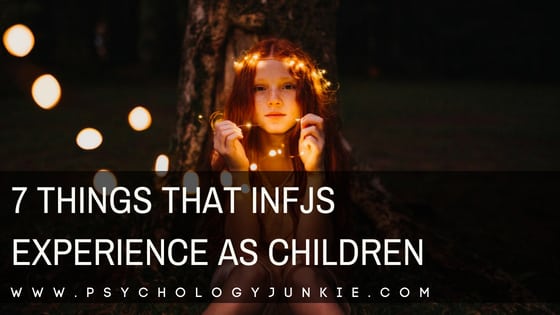
This article contains affiliate links. I only recommend products I truly believe in.
Table of contents
Estimated reading time: 9 minutes
7 Things That INFJs Experience As Children
#1 – A Hesitancy To Accept Things at Face-Value
While the rest of the world seems to step out into their environment with certainty, easily believing that they will be supported by the walls, floors, and structures around them, INFJs second-guess everything. What is an illusion and what is real? What is the meaning beyond these concrete, tangible items? They want to transcend the material world, look beyond the senses, and beyond the limits of time itself to understand the over-arching meaning of everything. While most other children are focused on what’s happening now, INFJs are trying to figure out what “now” is in relation to everything else. In fact, what does it even mean to exist in “the now”?
Childhood can be a magical time for any personality type. All children are blessed with imagination, and they are all still trying to figure out what’s real and what’s not. But INFJs tend to take longer than other types, especially sensing types, to discern what’s real and what’s not. It’s not unusual for INFJs to report that as children they wondered ceaselessly about the nature of reality and what their place was in the theater of life. What holds the earth in the sky? Why is it held there? Why was I brought into existence? INFJ children tend to take the role of “miniature philosopher” very seriously.
#2 – A Desire to Decode Dreams
While other children might be happy with the whole “dreams don’t make sense and that’s okay” line, INFJs don’t usually subscribe to that. Introverted Intuition, the preferred mental process of the INFJ, is all ABOUT unconscious symbols and imagery…that’s right, the stuff you find in dreams.
In the words of depth typologists Leona Haas and Mark Hunziker,
“Introverted Intuiting is the keeper of the so-called sixth sense. Unexplainable information can take the form of hunches, clairvoyance, abstract intuition, and messages from the unconscious.”
Also…
“Introverted intuiting is the only perception process that is independent of the conscious mind.”
– Leona Haas and Mark Hunziker, Building Blocks of Personality
Now I’m not saying INFJs are psychic, although many experience strange feelings that seem psychic. There’s nearly always a reasonable explanation for those feelings, though.
Dreams, however, are taken very seriously by young INFJs. They analyze the symbols, the images, the underlying themes, and look for messages that might be important to them. In fact, Carl Jung, the founder of personality psychology, referred to introverted intuitives as “the mystical dreamers and seers” of the world.
#3 – A Strong Understanding of Other People’s Emotions
INFJs are extremely affected by harmony, conflict, stress, or anger. They are very empathetic children and are particularly tuned into the emotional environment of their families or classrooms. One of the reasons they enjoy solitude so much is because they can separate themselves from the overwhelming emotions of other people. ]
INFJs tend to feel responsible for other people’s feelings like they have to “fix it” if things are bad. This is thanks in part to their auxiliary function, Extraverted Feeling. At a young age, this function isn’t very well-developed yet, so it feels overwhelming and stressful for young INFJs to tap into frequently.
Psychologist David Keirsey says of INFJs,
“This type of Idealist has strong empathic abilities and can become aware of another’s emotions or intentions – good or evil – even before that person is conscious of them. Such mind-reading can take the form of feeling the hidden distress or illnesses of others to an extent which is difficult for other types to comprehend.”
– David Keirsey, Please Understand Me
Young INFJs are so conscious of how other people are feeling that they can have difficulty understanding how they themselves feel. At times, this empathy can be a gift. They may know just what’s bothering someone and what to say to encourage them. Other times it can be a curse, and they can feel overwhelmed by emotions they don’t understand because they aren’t their own.
This is one of the reasons it’s very important for parents of INFJs to give them plenty of alone time and to keep the environment as conflict-free as possible.
#4 – Distraction
INFJs are drawn to complexity on a constant basis. Remember how I said they don’t take anything at face value? Well, that certainly applies to their interactions with people. INFJs analyze what people are saying to them, always looking for hidden intentions, meanings, symbols, and significance. And if they’re on their own they can get so lost in their imagination that the outer world becomes silent to them.
This can mean that one of two things happen when you’re talking to them:
1 – The young INFJ is so focused on analyzing what you said in the first two minutes of the conversation that they lost track of what you’re currently talking about.
2 – If they are playing on their own, they can be so lost in their imagination and ideas that they didn’t realize you said something to them or gave them a direction. This adds up to them being very confused fifteen minutes later when you said, “but I TOLD you to come in for dinner!”
#5 – Intense Frustration Over Interruptions
INFJs have a difficult time switching gears in childhood and adulthood. They like to fully immerse themselves in what they’re doing. They frequently get into a meditative, calm, focused state when they are analyzing, creating, or imagining. It’s as if the rest of the world goes quiet and everything seems peaceful yet alive. When someone bursts in on them during these times, they can seem annoyed, irritated, or overwhelmed. They may cast off their normally kind-hearted disposition and seem surprisingly harsh or sarcastic. That’s because when they’re in these states they are usually tapped into their dominant function, Introverted Intuition, NOT their feeling function, which comes second.
Basically, it takes them a while to revert back to the “I’m around people, so I better tap into their feelings and their needs” phase.
#6 – Perfectionism
If you see a young INFJ repeatedly balling up the story they are writing, tossing it in the trash, and scowling furiously, then you might have caught a glimpse of INFJ perfectionism. Young INFJs have extremely idealistic hopes for the projects they create. Bringing their ideas out into the world is often stressful and time-consuming for them. They feel that the real thing “must” live up to their idealized image. It doesn’t help that they tend to have complicated, substantive projects in mind and not simple ones. They can re-work, throw away, modify, adjust, and correct their project so many times that they end up in a state of exhaustion.
If you’re the parent of an INFJ, it’s important to give them some space when they’re working creatively. If they’re not happy with what they’re doing, continue to give them space, even if you feel like you must step in. INFJs tend to be very sensitive about their work and won’t want feedback until they are ready to ask for it. And they will ask when they are ready most of the time. When they do ask for feedback, try to be as positive as possible and give specific compliments, not generalized ones. If they want suggestions, be sure to mix criticism with praise for what they are doing well.
Related: The INFJ Workaholic
#7 – Loneliness
Young INFJs soon discover that most of the world doesn’t operate in the same way that they do. Not every other child wonders about the nature of reality, why they exist, what this symbol means for that future, or what will happen in 50-100 years. Not everyone gets these sudden “hunches” about what will happen that they can’t explain because it hasn’t sorted itself out yet. INFJ visions, so clear inside their mind, often come across as halting or rambling in person. They may feel they know something very strongly and feel as if they must tell someone about it, but then be met with ridicule, skepticism, or mocking when they finally do.
Almost every INFJ I’ve spoken with has at one point in their lives come to a realization that their way of seeing the world isn’t generally accepted or understood. They often come to a point where they learn to keep things inside and they begin to question everything that comes naturally to them. It is extremely rare for young INFJs to find a like-minded individual who understands them, shares their feelings, and trusts their insights. You can find out more about INFJ loneliness here.
It’s important for parents of young INFJs to take them seriously, to answer their questions, to not belittle their process or “rush them along” when they’re trying to explain an insight. With encouragement and open-minded acceptance, INFJs can be catalysts for positive change in the world.
What Are Your Thoughts?
What have your experiences been as a child? Do you have any thoughts to add? Let us know in the comments!
Want to Book a One-on-One Type Consultation with Me?

Not sure of your personality type? I can help you! As the founder of Psychology Junkie and an MBTI® practitioner I’ve spent over seven years helping people discover their true personality type. Use the scheduler below to book a session with me!
Want to Find Out More About the INFJ?
Check out my eBook, The INFJ – Understanding the Mystic.
Want to Discover Your Child’s Personality Type?
Check out my eCourse, Parenting by Personality Basics.
Other Articles You’ll Love:
7 Reasons Why You Need an INFJ Friend in Your Life
10 Ways INFJs Can Boost Their Creativity
3 Weird and Wonderful Secrets About the INFJ
10 Things You’ll Relate to If You’re an INFJ
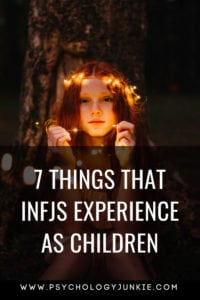
Subscribe to Our Newsletter

Want to discover more about personality type? Get the inside scoop with Susan Storm on all things typological, along with special subscriber freebies, and discounts on new eBooks and courses! Join our newsletter today!


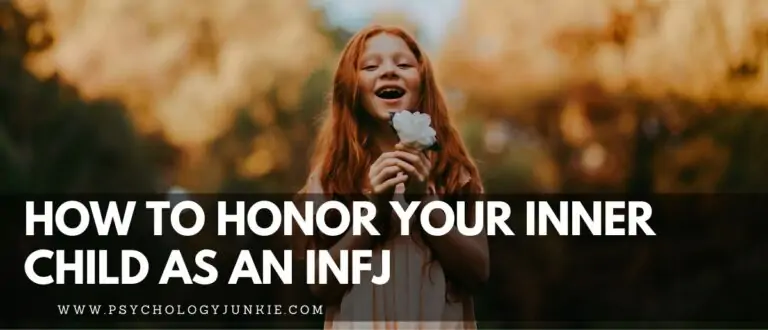
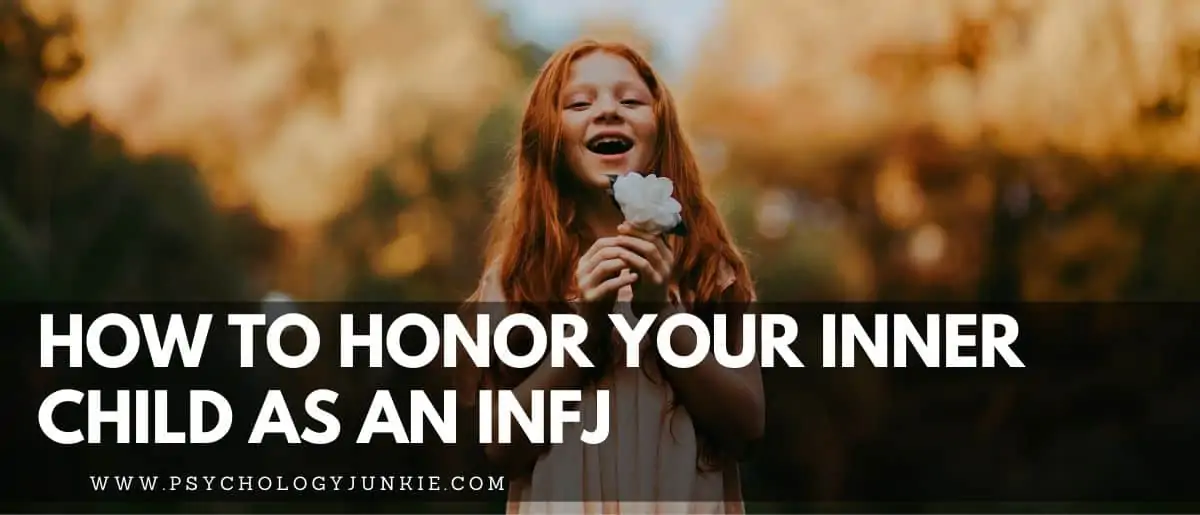

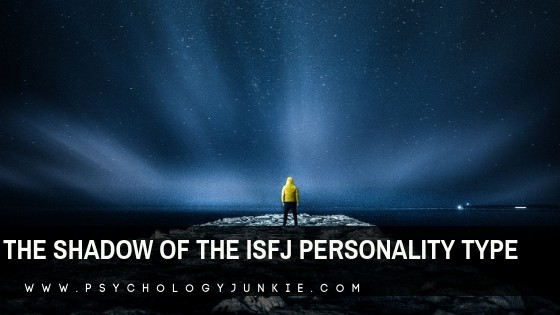
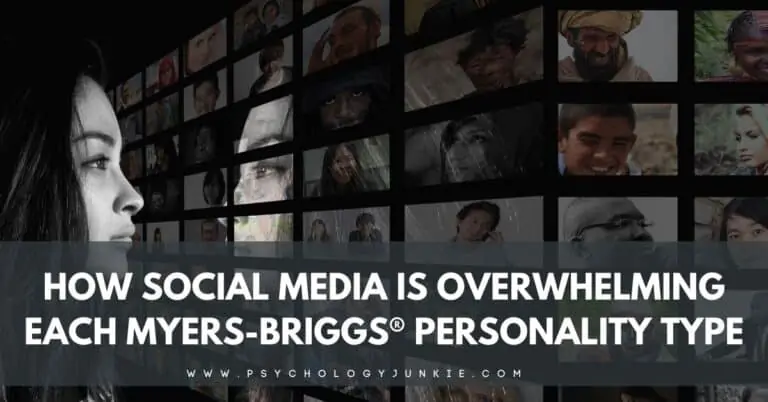
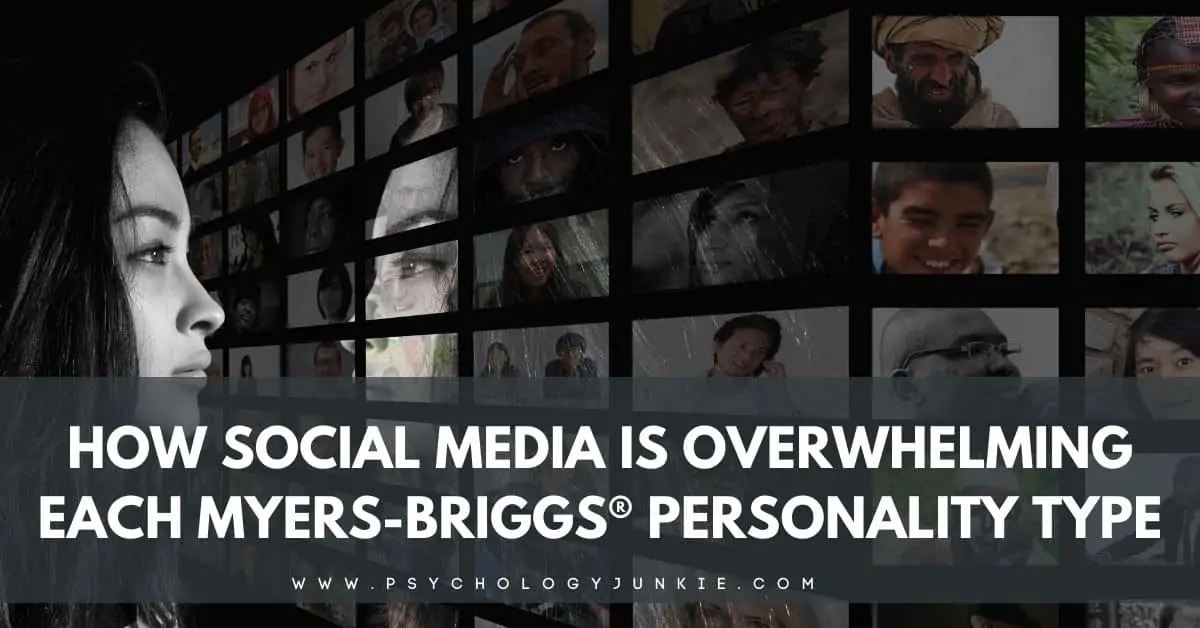
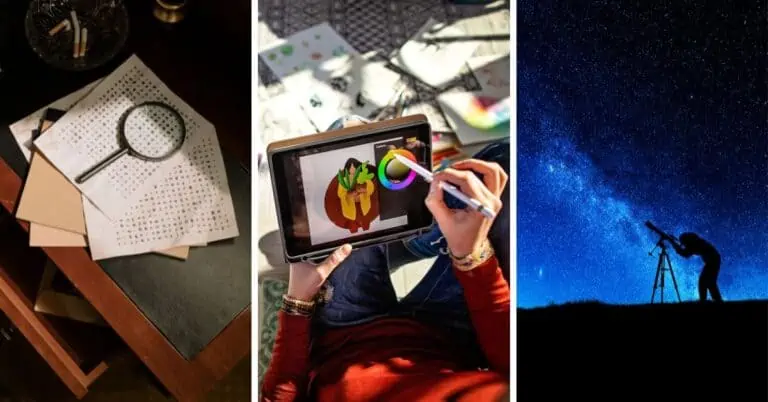
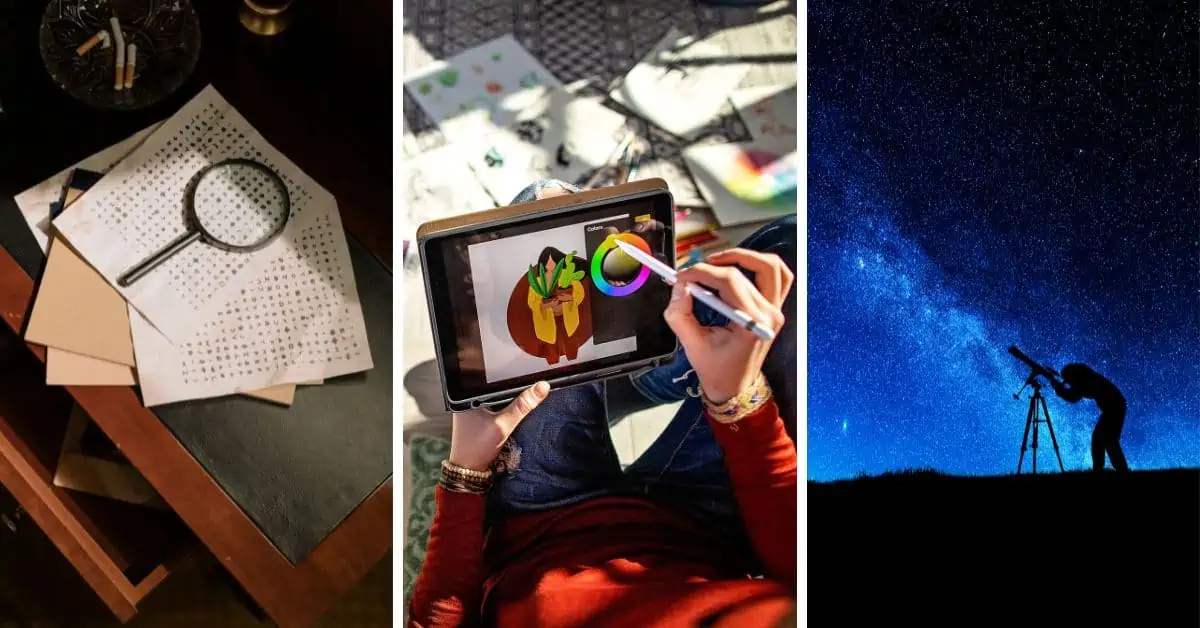
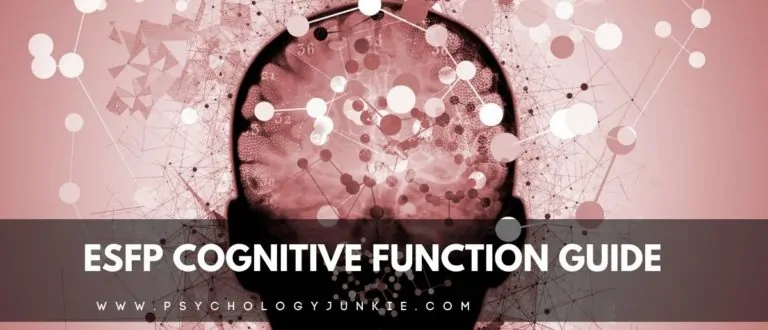
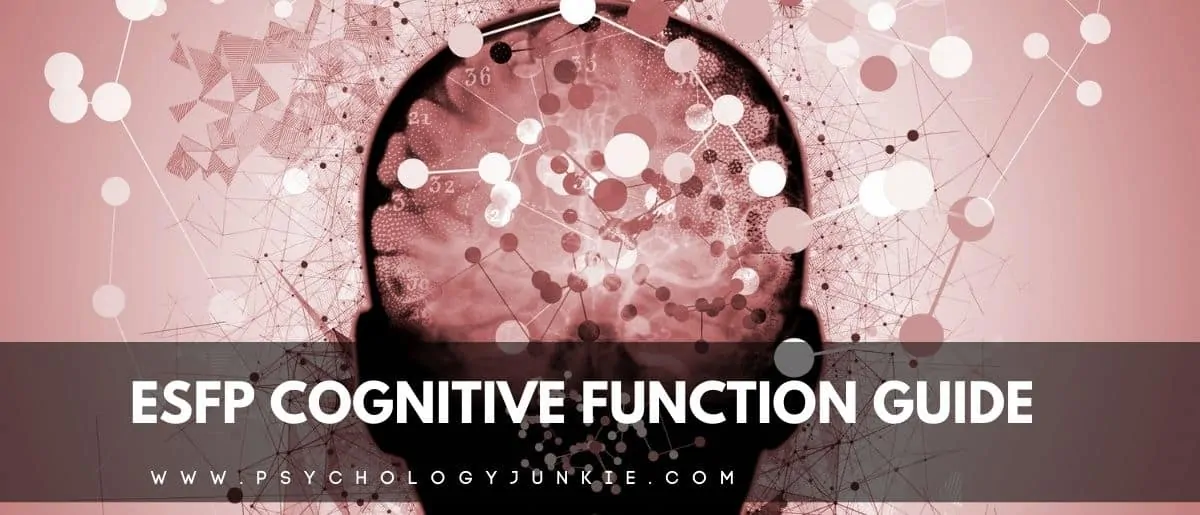
This post made me take a step back in time. It’s almost like I could feel all of the emotions that I felt as a child going through each and every one of these points. They still resonate strongly with me as an adult, although I think I am noticing that I have shut out our shut down some of the feelings I feel because they are not understood. It’s probably why I love getting lost in really good books or movies, because I can fully engage in them and get lost in the characters. I remember so many summers as a child, just spending tons of time by myself and being perfectly content. Cloud gazing was one of my favorite activities. Only every once in a while would I get lonely and go visit a friend in the neighborhood. The one person that has come close to really understanding me and my emotions is my 17 year old daughter who is an ENFJ. We relate on so many levels! I’m so looking forward to all of the conversations we will have as she and I get older.
Physically crumpling when an adult told me off, whether it was a parent or teacher.
Feeling like not even my own parents understood me, as they asked me why I couldn’t be more like my sister.
Like most people here I only found out about beinf INFJ recently and it has helped me understand and accept myself so much better.
From what I remember and my own child perspective, I remember being really secretive as a child in certain ways. When I’d write, draw or play, I would always do it away from grown ups for different reasons. I was self conscious and I always felt like I could see a series of likely events happening if I were to let them see in my vulnerably creative space and I always avoided that.
I also remember questioning everything as a kid. I’d have moments where I’d randomly asked my siblings questions only they would know to test whether they were real or not in that
I remember being able to recognize intent and emotional reasoning behind actions that were harder for others to accept. I could see and understand that my mom would say something to hurt my feelings because she wanted to hurt my dad’s feelings, because she herself was hurt. Stuff like that.
I was honestly a strange, quiet, caring little girl that felt like (and still feels like) the pain and joy of all of humanity are manifested in. It’s weird, but cool.
From my earliest memory(2yo), I remember feeling awkward(ugly duckling), misunderstood, out of place, and a burden or bother. I was often dismissed as silly, fanciful( very imaginative, day dreamer, out of touch with reality), very dramatic, or over emotional. Older teens and adults usually stopped listening to me turning back to their previous conversations or task rolling their eyes or huffing and uhuhing me or shooing me away. Younger teens and children my age usually only included me when they wanted something from me or to entertain themselves, by making me the butt of their jokes or pretending to really like me. My mother and paternal grandmother called me emotionally overwhelming, too sensitive(big baby), or drama queen, both were highly critical of me and couldn’t deal with me and my draining emotions and excessive blabber. My maternal grandmother and my daddy both indulged me and constantly showered me in compliments but were never really present and really judgemental due to being very religious. My paternal grandfather was my savior, my lifeline, my rock, he was my security blanket giving often silent but unconditional love support and acceptance. He was my refuge in this cruel cold world(He was taken from me when I was 15 destroyed my whole world). That’s the negative side though I was on the other hand considered mature, responsible, polite, helpful, and well behaved. Adults female teachers and sitter’s loved me. Mom’s/Grandmother’s with small children needing care or just entertainment, late teen/young adults loved talking to me hanging out, younger children, toddlers, and infants flocked to me in droves for peace/kindness/attention animals too. They also loved/adored me. Not to mention the bullied,outcast, weird underdogs my age they came to me for friendship. I remember feeling this need to soothe any kind of pain and show them love that someone cared it would be alright. I remember being frightened of anger and creeped out deviant vibes just wanting to run and hide. My favorite place was in my room listening to music, reading a book, writing stories, poem’s, lyrics, journaling, or day dreaming still is to this day. I question, analyze, and research everything. I have very strong values/beliefs that i stand up for but also try to see the other side so I’m not just being ignorant and closed minded. I have a sense of humor that ranges from super dumb to pretty dark. I feel everything intensely, I love deeply and unconditionally forever(even if I won’t interact with you anymore), betrayal effects me so completely it’s very physical(the hurt going straight to my core), and passionate, violently intense anger(which fuels me), I always strive for honesty(exceptions are denial to myself about things I don’t want to accept eventually I concede, exaggerating reasons for cancelling activities or events because I feel bad or shitty, and outright lying when a dr or cop ask if I did or do something illegal), I’m loyal to a fault, and very protective of my loved ones and innocents. I’m complicated(I struggle with/suffer from severe clinical depression and anxiety), I’m me.
-Sorry for the lengthy read.
I am 35 years old and recently learned of mbti, typed as an INFJ, and suddenly so many things ‘clicked’ for me! I had began to come into my own a few years ago, beginning to re-discover myself, I felt like I was so odd. I had never felt like I fit in with anyone, I feel like I was a quiet kid and didn’t share my thoughts with anyone, I don’t remember much of my childhood. But have been through therapy to process childhood trauma and abuse. I have come through all that and am in a great place.
But I feel like not having understanding parents and having a rough childhood really set me back. I am only now able to embrace how cool I am, after being told “you think too much, read too much, care too much, worry about the world too much,” and I only recently met someone who gets me, the love of my life no less ☺️.
It is important for parents to understand their children, sadly, many don’t. I have two kids, 7 and 9. After discovering mbti, I used your resources to decipher their most likely types, I seem to have an ESTJ daughter, fittingly the eldest, and an INFP son, who is such an imaginative dreamer. They are extreme opposites and it has consistently been a struggle between her rule enforcing and bossiness and his independence and imagination ????
It has helped me greatly to apply mbti to my parenting, thank you ????
I didn’t get typed as an INFJ till I was in my late 30’s. So going through life with differently minded family members, friends, and acquaintances was very stressful. I remember many times during my early teens of breaking down crying in the bathroom because I was stressed out and overstimulated. I remember taking every criticism to heart, as if they were telling me that I wasn’t good enough and that I never could be. I stopped trying to explain my ideas to people because I could never properly organize my thought process of how I arrived at the completed idea. I felt small, invisible, and useless. I felt stupid, because everyone else seemed to know what was going on and how things worked. In large groups I couldn’t even properly introduce myself, I was so focused on making sure I clearly stated my name and greeting that I would often miss/forget their name. I’ve only ever had one close friend, but I have cherished her for 30 years. It was a very long, difficult road to self-acceptance. And there are still things about my personality that frustrate me, but now that I better understand how my type does things maybe I can learn to do things my way, and let go of the idea that the only right way is to do it like everyone else.
I’m curious how do children get labeled a certain personality when they are still growing ? I didn’t take the test till in my late thirties but after reading this , thinking back as a child it’s pretty dead on.
Usually children are typed by their parents or through the MMTIC®, which is a Myers-Briggs® indicator specifically made for children 🙂
This was so insightful and absolutely true, to the point that it was a bit disconcerting.
Thank you for your research and for helping us, that make up such a small amount considering other personality types, feel as if we are not alone in our way of thinking, after all.
It is always nice to have someone say, hey, there is nothing wrong and you are not the only one thinking so!
Thank you for writing these articles. I have always been uneasy about being around people because I rarely connect with anybody and understood that I was different (not in a bad way but the whole fitting in thing always eluded me) but never understood why.
I took the MBTI for a job I had and then started focusing on it when taking psychology in college. I always P typed as an INFJ. Now it just makes me smile when I read articles and blogs about INFJ’s because now I can understand why I am the way that I am and I understand now how and why people perceive me the way they do. I’ve always wanted to be around people and be invited to things but I was never able to “perform” properly in large social settings. My person interaction limit is 2-3. Anything over that and I sit and listen and think, mostly silently. But knowing the typology of the INFJ I can look back on my life and understand almost all reactions (both mine and others to me), choices and decisions that I have made. Talk about feeling enlightened! It all makes so much sense now.
I very much appreciate your articles because I like to research everything to death and yours have given me invaluable insight into myself and others. Again, thank you. I also wanted to say I think it’s very interesting and honestly amazing that (aside from people with highly deviant behaviors) everybody falls into 16 different personality types with only a few minute inconsistencies.
I took the test and it said I was a ISTJ. I do not agree at all. I am an INFJ.
Hi just recently started learning about personality types and infj sure does explain alot of things and feel right to me.
For 25 years I worked with with a man that I became very close to and trusting. I was a young carpenter when I started to work for him, he was a master Craftsman 20 years older than I and highly respected within the trades.
We developed a father son relationship and I learned so much from him. For a number of years everything was great but as time went on things changed and I started to see the true man that he was. After years of theapy and alot of research I believe he is a covert narciss.
If I am an infj how come I didn’t see this in him. Infj can read people, pick up on things.
So hear is my question. How come I didn’t see this in him sooner??
It wasn’t until years after being ” Discarded ” I figured out kind of what happened to me. I am doing better now, I found a great therapist and I’m still learning about all that has happened and gone through.